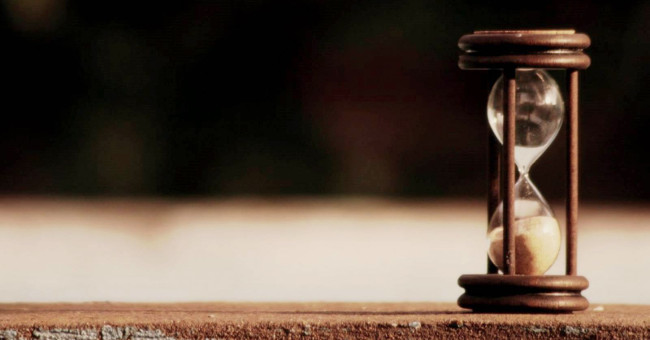Why the bigger we see, the faster time passes?
Have you ever experienced the feeling of waiting for the New Year when you were young, but now that you have grown up, it has been almost the end of the year, really "time has passed like a dog running in the field" .
- There is a recipe to help you have a good sleep while awake at all times
- Science explains the cause of the phenomenon that has just left the door to forget what to do that many people have
So, what makes us feel time passes faster as we age?

To explain this, we first look at the time-line "formula" given by technologist Maximilian Kiener based on the philosopher Paul Paul's findings.
Accordingly, with a 1 year old child, a long year lasts as long as their whole life. When the child is 10 years old, the year is shortened to only 10% of their lives, the children still wait until birthdays and Tet but this wait will be shorter.
Just like that at this rate, by the age of 20, a year is only about 5% of life and when we are 50 years old, then only one year is 2%.
Thus, we perceive each time interval with the same length. Therefore, the difference between the ages of 5 - 10, 10-20, 20-40 and 40 - 80 is the same, in particular the 5-year period you experience from 5 to 10 years will be as long as time from 40 to 80 years old.
Therefore, you will feel time passes quickly "dizzy" when you get old.
From a scientific perspective, why is it that the older we feel, the faster time passes?
The hypothesis that many believe is the change of the biological clock inside each person.

When people grow up, the body's metabolism will slow down. Meanwhile, young children have a faster circadian rhythm that makes heart rate and breathing faster than adults for a fixed period of time. It is this that makes children feel that there have been many things, many things have happened but not yet to birthday, Tet .
Besides, some people believe that people perceive time to be proportional to the amount of information they receive.
With new or complicated problems, the young child's brain will need a lot of time to process information, which makes them feel time passes more slowly.
As we grew up, everything around us became familiar with us. So in order to process information, the brain does not need to spend too much time, so it feels time passes quickly. In contrast, when children were young, everything around them was new, so the young brain needed to analyze the surroundings, causing the feeling of time to drift slowly.
Whether time passes quickly or slowly, once it has passed we cannot get it back. So, always live happily, do what you want to not regret later. Live a meaningful life because surely time will flow faster every day.
You should read it
- ★ Review Inertial Drift - Come on, let's drift together
- ★ How to Change the Time Format on a Mac
- ★ How to adjust Casio electronic clock timer 3 buttons, 4 extremely easy buttons
- ★ The sundial does not use batteries, electricity or any motor
- ★ How to use PolyTime - the best time zone conversion application